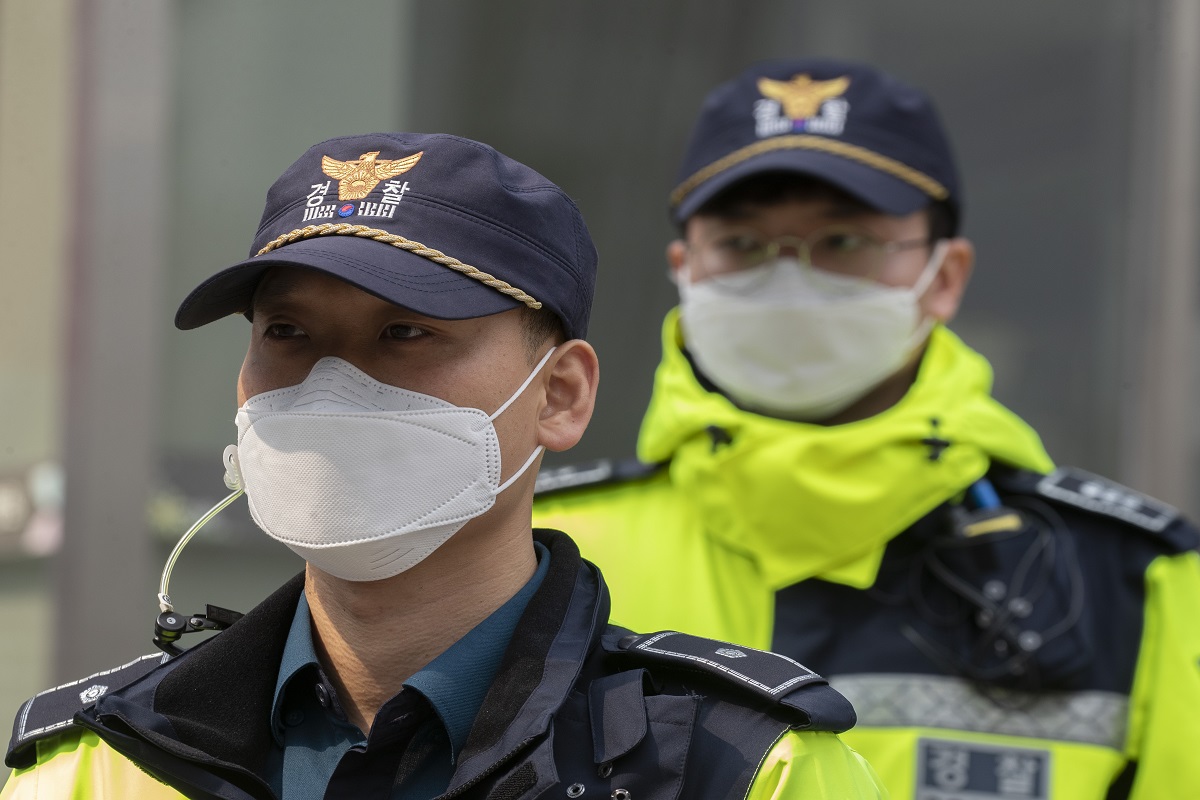South Korea’s court to hold final hearing of Yoon’s impeachment trial on Feb 25
South Korea's constitutional court will hold the 11th and final hearing of President Yoon Suk-yeol's impeachment trial on February 25.
It is the first time that the number of daily new infections fell below 20 since May 9 when the single-day cases hit 18.

Police officers maintain order at the gate of a sanatorium where mass coronavirus infections occurred in Daegu, South Korea (Photo: IANS)
South Korean health authorities said on Saturday that they saw no rapid spread of the COVID-19 linked to cluster infections in a nightlife area of Seoul as the country reported the fewest daily cases in a week.
The new 19 more cases, detected on Friday, brought the country’s total to 11,037, according to the Korea Centers for Disease Control and Prevention (KCDC). Nine were local infections, six of which are tied to the Itaewon outbreak, reports Yonhap News Agency.
Advertisement
It is the first time that the number of daily new infections fell below 20 since May 9 when the single-day cases hit 18.
Advertisement
Itaewon has emerged as a hotbed for coronavirus cluster infections here since the related first case was reported last week.
The total caseload tied to visits to clubs and bars in the multicultural district of Itaewon reached 162 as of Saturday.
“Despite massive testing, there seems to be no trend of the rapid virus spread tied to the Itaewon outbreak,” Sohn Young-rae, an official at the disaster management headquarters, said in a briefing.
The government has called on those who visited Itaewon between April 24 and May 6 to receive virus tests to stem further spread of COVID-19.
Anonymous tests are also available for those who do not want to reveal their identities.
Given about 56,000 people have taken the tests so far, the government assumed most visitors to Itaewon have received the test.
Also on Saturday, South Korea reported two more deaths, bringing the death toll to 262.
South Korea has flattened the infection curve with its massive testing and contact tracing since its first case on January 20, Yonhap News Agency reported.
The number of daily new infections, which once peaked at 909, fell to a single digit figure in the first week of May.
Following 45 days of stricter social distancing, South Korea switched an “everyday life quarantine” scheme on May 6 to enable citizens to carry out social and economic activities under quarantine rules.
The country planned to gradually reopen schools starting Wednesday, but decided to postpone the plan by a week due to the Itaewon outbreak.
Advertisement